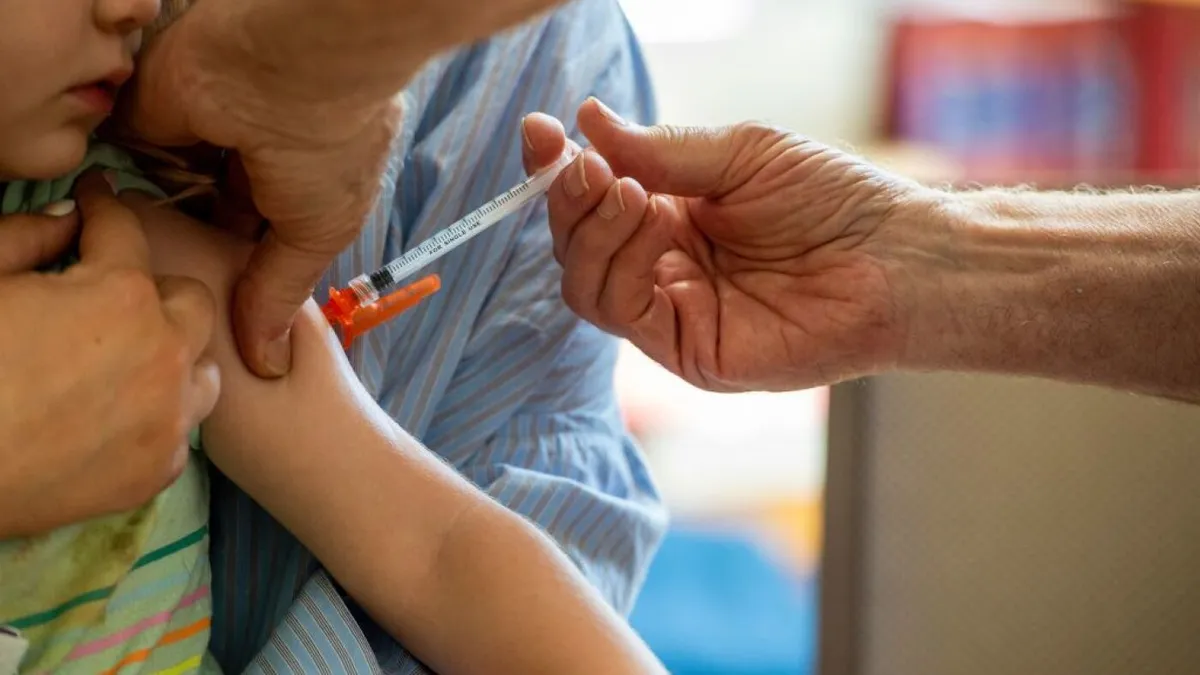
Remy Sweeney-Garrett, a concerned mother from Seattle, is facing a frustrating challenge: she desperately wants to get her daughters vaccinated against COVID-19, but has been unable to do so. "I'm very worried and frustrated," says Sweeney-Garrett, who is 34 years old and lives with her two daughters, 9-year-old Maxine and 18-month-old Maeve.
Despite the urgency, Sweeney-Garrett has been unable to secure appointments for her daughters because the Centers for Disease Control and Prevention (CDC) has yet to issue final guidelines for administering the vaccines. These guidelines are essential for the federal Vaccines for Children Program to begin distributing vaccines to healthcare providers, health departments, and other organizations. Approximately half of U.S. children are eligible for vaccinations through this program.
"I'm particularly worried about my youngest daughter, who is susceptible to respiratory complications and could end up in the hospital," Sweeney-Garrett expresses. The delay from the CDC is particularly frustrating for her because she feels it is something that could be controlled by government officials. "The CDC's delay is very unusual," she notes. Typically, the agency acts swiftly—often within days or even hours—due to the urgent need to get vaccines into arms before the winter surge.
The delay in CDC guidelines has created significant confusion among the public and healthcare providers regarding the status of the vaccines. Dr. Susan Kansagra, the chief medical officer for the Association of State and Territorial Health Officials, highlighted this confusion, stating, "The delay has created a lot of uncertainty for both parents and providers." Sweeney-Garrett's concerns are echoed by many parents who are anxiously inquiring about the availability of COVID vaccines for children. "We have parents asking every day for vaccines. They want the COVID vaccine," says Dr. Elias Kass, the family doctor of Sweeney-Garrett. "And we simply don’t have it or an estimated time of arrival."
The CDC's inaction has not only affected children's vaccinations but has also complicated the process for adults seeking to get vaccinated. Many people are struggling to navigate a confusing patchwork of state regulations that have made it difficult for them to access vaccines. While some states have made efforts to simplify the process, others still require prescriptions, and some pharmacists are turning away individuals who cannot provide proof of eligibility.
"It's a mess," says Dorit Reiss, a vaccine policy expert at the University of California, San Francisco. "This is an easily avoidable situation; the government chose not to take action, which I believe will harm public health and result in increased cases of COVID-19." The Department of Health and Human Services, which oversees the CDC, has not provided immediate comments or explanations regarding the delays.
This year's roll-out of COVID vaccines has been particularly chaotic. Historically, anyone aged 6 months or older could receive vaccinations from their pharmacist without needing a prescription. However, for the first time this year, the Food and Drug Administration (FDA) approved the new COVID shots only for individuals at risk of serious complications due to their age or health status, leading to widespread confusion.
After a tumultuous two-day meeting last month, the CDC's Advisory Committee on Immunization Practices, now influenced by Health Secretary Robert F. Kennedy Jr., recommended additional requirements for receiving vaccinations while also taking steps to broaden eligibility and expand vaccine distribution to children. Unfortunately, the CDC has yet to accept these recommendations, leaving families and healthcare providers in a state of limbo.
According to Dr. Kansagra, this delay is a critical barrier to enabling access to vaccinations. "It's a huge problem," she emphasizes, especially with the winter respiratory season approaching. The ongoing government shutdown adds another layer of uncertainty regarding when the CDC might take action and what those actions might entail. With health officials expressing deep concern, the community remains hopeful for a swift resolution to ensure that both children and adults can receive the COVID-19 vaccines they need.